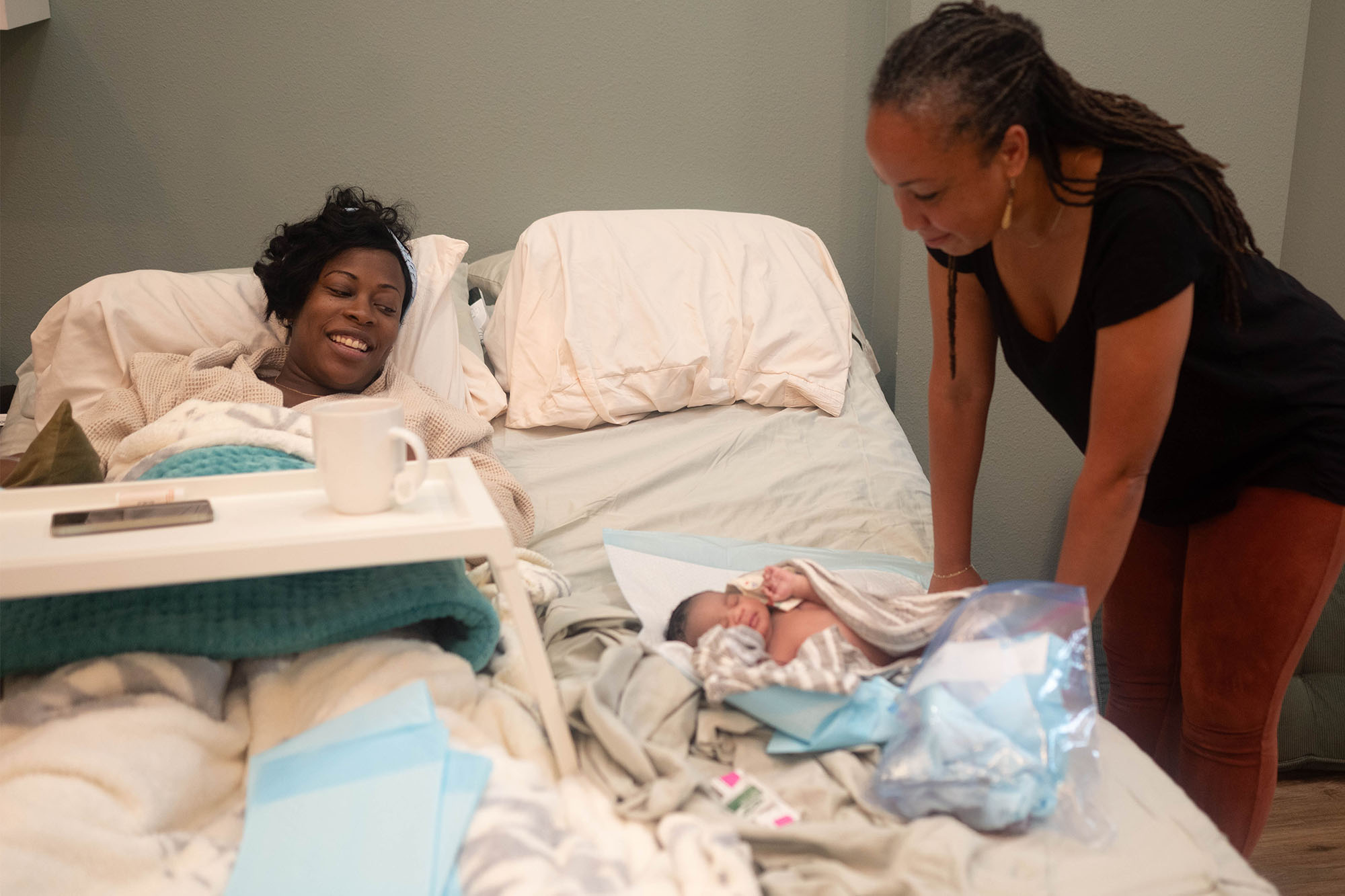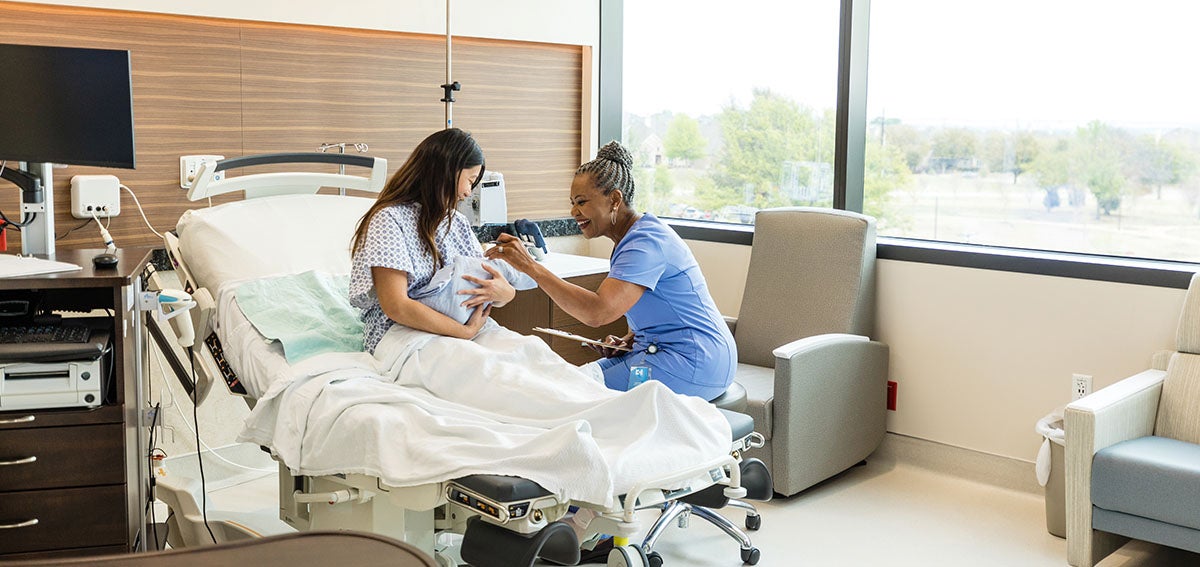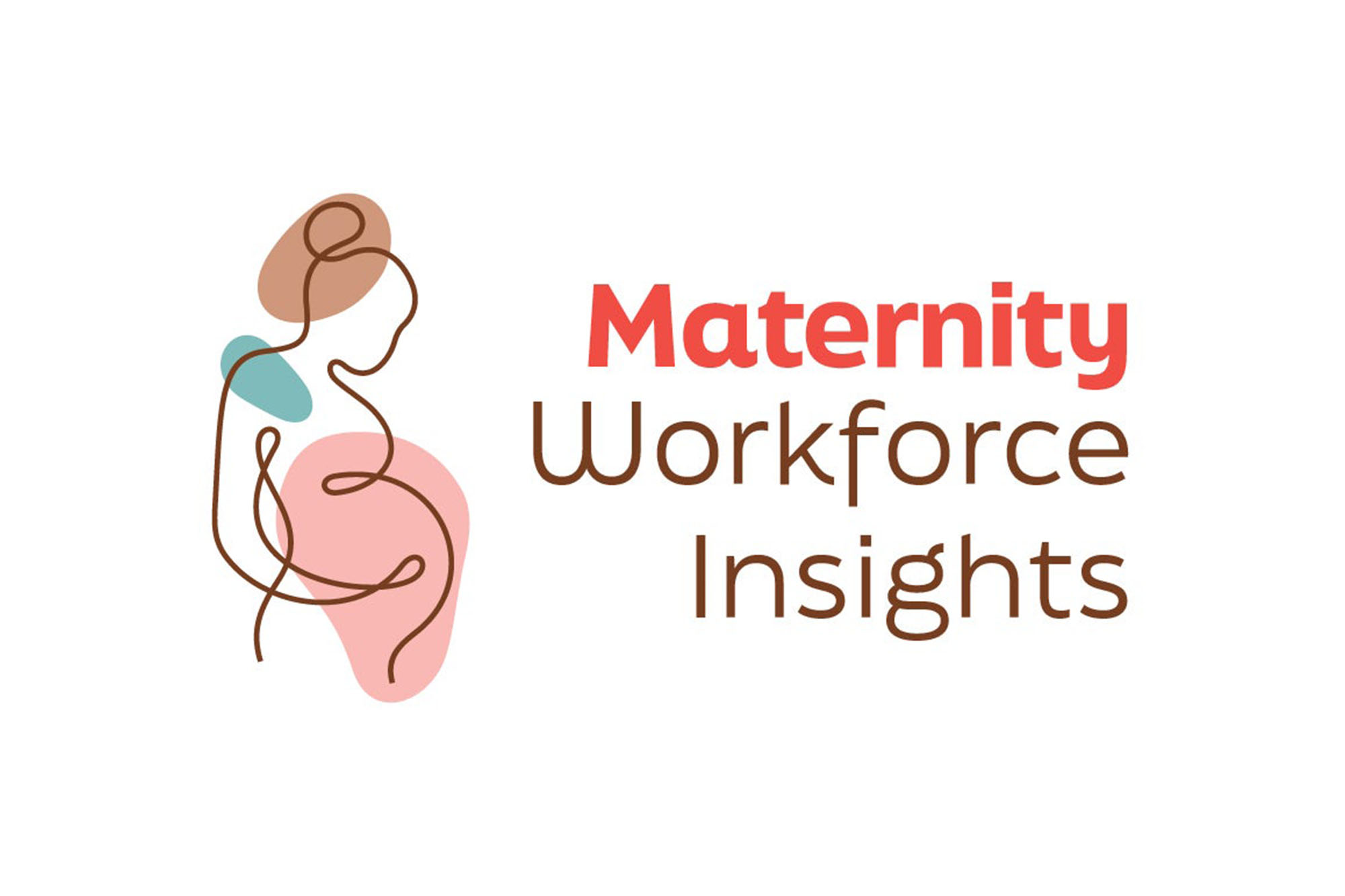

Amid all the excellent media coverage of the US maternal mortality crisis in recent years, something has been missing. “Too much reporting on Black maternal health has been doom and gloom,” said Monica McLemore, PhD, MPH, RN, assistant professor at the UCSF School of Nursing. In an interview with Rewire.News, she called for the media to shift the maternal health narrative — “to lift up Black mamas and let them bring forward their solutions.”
That was the theme of the Black Mamas Matter Alliance’s (BMMA’s) second annual Black Maternal Health Week from April 11 to 17, which focused on awareness, activism, and community-building. In an effort to revise the media narrative, BMMA events in 15 states and online highlighted solutions to help Black mothers and birthing people* have healthy pregnancies and thriving babies.
Black mothers are more than three times as likely as mothers of other races to die from maternal and childbirth complications. In Scientific American, McLemore, a BMMA advisory committee member, wrote, “Everyone — from doctors to the media to the public — needs to stop blaming women for their own deaths.” Researchers and reporters, she said, should focus instead on understanding the underlying causes of maternal health disparities — most notably, racism. “California has led in the pursuit of understanding root causes of maternal mortality,” McLemore wrote. “Structural racism is proving to be an intractable force.”
Doula and Midwifery Services Can Help
Community-based maternity care models could help break down the walls of racism. A new issue brief (PDF) from the National Partnership for Women & Families highlights community-based models like doula and midwifery childbirth services. These “go beyond the scope of services offered by conventional clinical providers because they also provide psychosocial support, cultural concordance, and care coordination that is grounded in reproductive justice,” the brief said. Research shows that women who receive continuous, one-on-one support during childbirth, like the services provided by a doula or midwife, are more likely to have positive health outcomes for themselves and their babies. Additionally, the Listening to Mothers in California survey showed high interest among women of all races, but especially Black women, for future use of midwives and doulas. (The survey was conducted by the National Partnership for Women & Families and funded by CHCF and the Yellow Chair Foundation.)
The city of San Francisco, recognizing the importance of childbirth support, especially for women of color, recently implemented a doula program for pregnant women with low incomes who identify as Black or Pacific Islander. Ashley McBride reported in the San Francisco Chronicle that the goal of the program “is to provide doulas to women who need help but can’t afford it, as well as training culturally competent doulas.” Former San Francisco Supervisor Malia Cohen, who spearheaded the program, said, “It’s an important vehicle for us to fill the gap on increasing positive health outcomes for the mother and baby.”
Another important vehicle is the California Birth Equity Collaborative, a new pilot project led by the California Maternal Quality Care Collaborative and funded by CHCF. It “aims to transform birth care for, by, and with Black mothers and birthing people in California in partnership with Black women-led community-based organizations; three participating pilot hospitals; and state, national, and local advisory groups.” The pilot, which began in January and is expected to run for two years, focuses on quality improvement in hospitals.
Including Black Women’s Voices in Policymaking
Sunshine Muse, a health disparities consultant who works in maternal and infant health, highlighted another solution in the online magazine The Root: Developing policies centered on Black women. “When policy development is led by Black women, the likelihood that Black women’s safety and care will be centered on its words and execution are high,” Muse wrote.
In Washington, DC, the first-ever congressional Black Maternal Health Caucus, launched by Representatives Lauren Underwood (D-Illinois) and Alma Adams (D-North Carolina) during Black Maternal Health Week, will focus on that goal. “Our caucus will elevate Black maternal health as a national priority and explore and advocate for effective, evidence-based, culturally competent policies and best practices for improving Black maternal health,” Underwood said, according to The Hill’s Rachel Frazin.
In Sacramento, two state lawmakers have introduced legislation to train health care professionals to provide culturally competent care. State Senator Holly Mitchell (D-Los Angeles) introduced SB 464, which would create an implicit bias awareness training program for perinatal care providers, Jazmine Ulloa reported in the Los Angeles Times. The measure would require the California Public Health Department to collect “better data on maternal mortality rates and require hospitals to provide patients with more information on how to file discrimination complaints.”
Assemblymember Sydney Kamlager-Dove (D-Los Angeles) introduced AB 241, which would require continuing education programs for physicians, surgeons, registered nurses, and physician assistants to include training on understanding implicit bias in medical treatment.
The wave of community and policy-oriented action around improving Black maternal health makes Dawes Gay optimistic, she told Rewire.News. “I am very hopeful that this work is ultimately going to lead to some meaningful change for Black mamas in the US,” she said.
*Using Inclusive Language Around Pregnancy and Childbirth
The use of the term “Black mothers and birthing people” by the California Birth Equity Collaborative pilot recognizes that not all people with the desire to become pregnant and give birth identify as a woman or a mother. In alignment with the values of BMMA, the pilot uses inclusive terminology, such as pregnant people, birthing person, and postpartum parent, to create a welcoming space for all families.
Authors & Contributors






